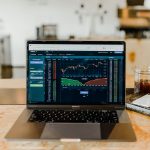Newcomers to the stock market often confuse the concepts to differ trading from investments. Sometimes, by speculating, they define themselves as investors. And, conversely, when purchasing securities for the long term, they believe that they are engaged in trading. We will figure out further, what are the similarities and differences between trading from investments, and why you should not mix these concepts.
Trading and investing concepts to differ trading from investments
Investing is the purchase of stocks, bonds, or other assets for the long term. The investor does not carry out frequent transactions with securities. The main goal of investing is to increase money without active participation of the investor. As for trading, this concept refers to active trading on the stock exchange and the execution of short-term transactions. As you can see, investing and trading are two ways to generate income while working in the financial markets. This is where their similarities lie. Now let’s talk about the main differences.
Asset ownership terms
As already mentioned, the investor acquires assets for the long term. Investment terms, depending on the strategy, vary from one year to several years. Or even several decades. Trading involves short-term transactions. Traders can buy and sell assets multiple times a day. Thus, unlike an investor, a trader does not own assets for a long time, his strategy is short-term transactions and speculation.
Profitability level
The return on investment is calculated based on annual growth. As a rule, 30% per annum is considered a good level of investment income. As for trading, here profitability is calculated as the ratio of profitable and unprofitable trades. The total annual profit of a trader can exceed the investor’s income by several tens of times. However, during this period, he or she can manage to lose the deposit several times and start trading again. In general, trading is a more profitable way of working in the financial markets than investing. But also more risky.
Earning strategy
The main income of an investor is dividends and the difference in the value of assets during their long-term growth.
Before purchasing assets, an investor must conduct a comprehensive fundamental analysis of the market. This will allow you to select the most promising issuers. At the same time, it is necessary to take into account not only the financial indicators of the selected companies, but also the state of the economic sector in which the issuer operates. It is also necessary to analyze the information background that affects the dynamics of the market. One of the fundamental analysis tools is the economic calendar. This is a service that is, in fact, an aggregator of economic news. It allows you to find out about current events in the global economy in one place. This service is usually available on brokers’ websites or specialized platforms such as Bristol House Corporation and OneRoyal.
As far as trading is concerned, the main way a trader makes money is income from the price difference. The task of the trader is to choose the most favorable moment for the transaction in order to get the greatest effect from the trade. The main trader’s tool is technical analysis. It involves identifying short-term market trends. A trader, unlike an investor, is not interested in what affects the price of assets. In the sphere of his or her interests only the dynamics of quotations itself. The trader’s task is to predict the direction of the trend movement.
Risk level
Investing is a safer way to gain profit than trading. Especially if the investor has a conservative or balanced strategy. With this approach, the risk of losing funds is minimized by diversifying the investment portfolio. Trading is a more risky instrument. The probability of being left without a deposit is much higher for a trader than for an investor without his investments. The market is very unpredictable, especially for a short period of time. Any mistake in the trading strategy or careless trade influenced by emotions can lead to significant losses. The investor has more time to make an informed investment decision. In the long term, almost all assets have an upward trend. Even if during this period the price, for example, of shares will periodically fall, in the end their value will still rise.
Risk management methods
As already mentioned, the main way to minimize risks when investing is to diversify the investment portfolio. The distribution of investments by different classes of assets, sectors of the economy, currencies and countries allows you to cover losses in the event of a fall in the price of some assets due to an increase in the value of others. Traders also have the ability to limit their losses. This can be done using stop orders. In particular, the stop-loss function allows you to close unprofitable positions when the specified value is reached. This allows you to reduce losses and prevent a complete loss of the deposit.
Time spent
Investing requires an initial “investment” of your time. Fundamental market analysis and selection of investment instruments is a rather laborious process. It is necessary to analyze a large amount of data in order to choose the most profitable direction for investment or a promising issuer. After acquiring the selected assets, the investor can be relatively free. He or she no longer needs to monitor the market situation. It is enough to periodically rebalance the investment portfolio. Trading, on the other hand, requires much more time and attention. Given the short-term nature of most trades, a trader should always be aware of the market situation. He or she needs to track the dynamics of quotes and market trends in real time. It takes a lot of effort and time.
What to choose? Differ trading from investments-
Both methods of making money in the financial markets have a number of disadvantages and advantages. The main advantage of trading is the ability to make quick money. Traders are guided by short-term trades, and they do not need to wait for their investments to bring income. The trading result is immediately visible. The resulting profit can be immediately withdrawn from the account, or put into circulation. Also, traders have no restrictions on the amount of earnings. Experienced traders can make big money on trades. In addition, the amount of profit can be increased through the use of leverage – borrowed funds from a broker. However, trading requires a lot of time and effort. The trader needs to constantly analyze the market situation in order to get the most out of the trade. At the same time, the market is very unstable. And the situation can constantly change. To stay “in trend”, you need to continuously monitor these changes. Trading is suitable for those who do not like to wait long and want to get a quick result. An essential quality of a successful trader is analytical skills and critical thinking. Also, a trader must be able to keep his emotions under control and make decisions with an open mind. Trading is quite a profitable but risky business. Therefore, if you are willing to take risks and do not panic at the slightest changes in the market, then this method will suit you.
As for investing, it also has its advantages. In particular, it is a relatively safe business. A well-designed investment portfolio allows you to minimize the risks of investment loss. The main thing, when making up an investment portfolio, is not to forget about diversification. Also, the advantage of investing is the possibility of earning passive income. Unlike traders, investors are relieved of the need to make transactions on the exchange every day and devote a lot of time to this occupation. However, a lot of time and effort is spent on initial market analysis and asset selection. Also, the disadvantage of investing is the long waiting for profit. In most cases, you can get income from investments only after a long period of time. Therefore, if patience is not your strongest side, then the investment is clearly not for you. An investor can be someone who knows how to wait for the result and does not seek to get it right here and now. Investing is also suitable for those who do not want to actively trade on the stock exchange and devote a lot of time to this occupation.












Just think of it! They provide access to over 3000 stocks. You can find anything in their list and develop any kind of strategy diversifying the risks. There are other assets too if you are interested in them. If you are not skilled, you can benefit from their hot ready ideas. I have tried – they bring profit!